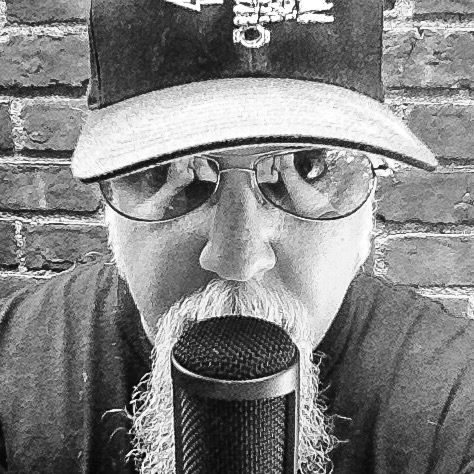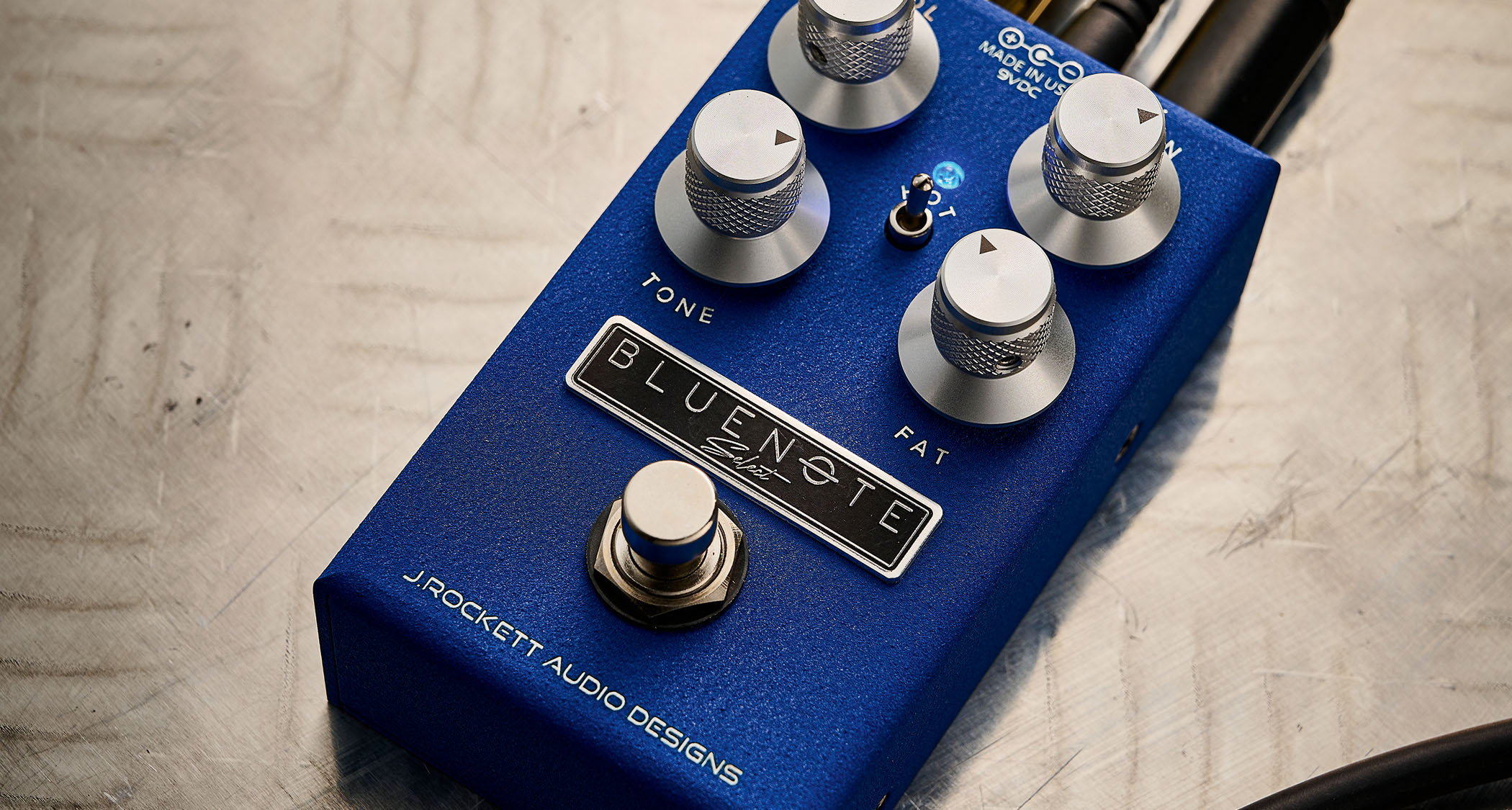Tony Iommi and Eddie Van Halen discuss their careers, friendship and the evolution of their guitar playing in this classic 2010 interview
Two of hard-rock's greatest guitar-slingers talk technique, career highs and lows, and how they influenced one another over the years
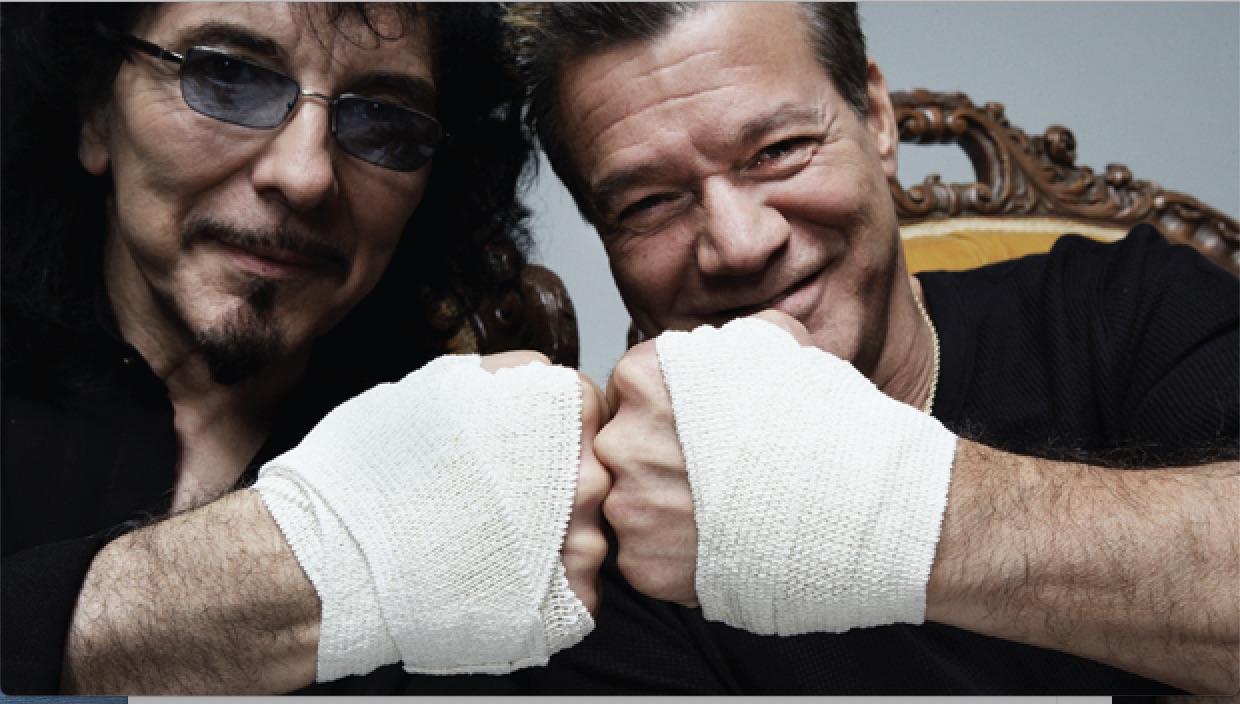
This interview was originally published in Guitar World in its 2010 30th Anniversary issue.
Rock guitar over the past 30 years would not be the same without Tony Iommi and Eddie Van Halen.
From details like playing techniques and equipment designs to the wide variety of hard rock and metal musical styles that sprouted from the seeds sewn by Black Sabbath and Van Halen, their influence remains omnipresent to this day.
While the music industry has changed significantly since Guitar World magazine made its debut in 1980, Iommi and Van Halen have never wavered in popularity, even as trends and tastes continue to shift and diversify.
“We’ve started trends, but that was not what we had in mind,” says Eddie Van Halen, sitting across from Iommi in a Hollywood photo studio where we’ve met to discuss the past 30 years of guitar. “When Van Halen started out, there was no path to fame. We just played what we liked. Even today it always comes down to the simplicity of rock and roll.”
“A lot of music has become a formula,” adds Iommi, who is, as always, impeccably dressed in black from head to toe. “When we started out there was no formula. You play music because you love it and you want to create something.”
What Iommi and Van Halen created stretches well beyond their own personal contributions and activities. With Black Sabbath, Iommi helped create the template for heavy metal, from its dark, violent sound to its gothic, occult-inspired imagery.
Get The Pick Newsletter
All the latest guitar news, interviews, lessons, reviews, deals and more, direct to your inbox!
Songs like Symptom of the Universe, with its dissonant intervals, driving eighth-note low E riffing and frantic, over-the-top solo, became the blueprint for almost every thrash song that has emerged since Metallica and Slayer first co-opted those elements for themselves.
Iommi’s habits of tuning down three half steps to C# (which he started doing when Sabbath recorded Master of Reality in 1971) and using generous amounts of gain to drive his amp into heavy distortion have become essential staples of metal music. Even the most extreme subgenres of death and black metal can all trace their roots back to Black Sabbath and Tony Iommi.
Van Halen’s influence on rock guitar is also universal. In addition to introducing various equipment innovations that he designed, inspired or helped perfect – like the custom, hot-rodded “super Strat” guitar, modern high-gain amplifier and Floyd Rose tremolo – he also helped bring highly skilled, technical guitar playing into the public spotlight.
When Ozzy Osbourne enlisted Randy Rhoads, or when Billy Idol teamed up with Steve Stevens, and even when David Lee Roth hired Steve Vai to join his post–Van Halen solo band, these singers realized that having a hot-shot, Van Halen–style guitarist in their bands was a huge competitive advantage.
Eddie’s innovative use of tapping, harmonics and volume swells has been discussed at length, but more importantly, he paved the way for players like Steve Vai and Joe Satriani to explore sounds that existed well beyond the fretboard and conventional playing techniques.
In one fell swoop, Van Halen made it cool to incorporate flashy guitar in pop music (think Michael Sembello’s Maniac or even Ed’s own playing on Michael Jackson’s Beat It) while he also inspired the shred guitar phenomenon, where experimental sounds and exotic scales became regular, accepted elements of the rock guitarist’s vernacular.
Driving around Hollywood today and comparing it with the Hollywood of 30 years ago, it’s easy to be pessimistic about the sorry state of today’s music industry. Glamorous office buildings that once housed record label offices now belong to film industry companies or the Church of Scientology or lie vacant.
The Tower Records store that once graced Sunset Boulevard is long gone (there’s now a discount clothing store on that lot), and Hollywood billboards no longer tout new album releases. In fact, the only musician-oriented billboards on the Strip are ads for the L.A. Dodgers baseball team that feature members of Poison and Mötley Crüe.
For that matter, the only signs that the music industry ever existed in Hollywood are Guitar Center’s Rock Walk and the handful of clubs that are still holding out, like the Whisky a Go Go, Roxy Theater and Key Club, which these days are more likely to feature sound-alike tribute bands than up-and-coming talent.
While the challenges for guitar players who want to enjoy a long, prosperous career in the music industry may be more daunting than ever, Iommi and Van Halen still inspire hope the same way they did 30 years ago.
When Van Halen started out, there was no path to fame. We just played what we liked. Even today it always comes down to the simplicity of rock and roll
Eddie Van Halen
Iommi tours regularly, and this year he released the acclaimed Heaven and Hell album The Devil You Know. Van Halen completed one of the decade’s biggest tours in 2008, and his EVH brand guitars and amplifiers provide players with some of the finest tools of the trade available today.
If Iommi and Van Halen continue to influence players over the next decade the same way they have over the past 30 years, the future for the guitar and guitar players looks very bright indeed.
Guitar World: Both of you have had significant influence on guitarists over the past 30 years. Pretty much every metal band that has formed since the New Wave of British Heavy Metal in the Eighties can trace its roots back to Black Sabbath.
Tony Iommi: "It’s weird when all of these players from successful bands come up to you and go, 'Without you I wouldn’t have done what I do.' I’m sure Ed feels the same way about all the Joe Satrianis and Steve Vais who were influenced by him."
In addition to the shred phenomenon, it seems like every rock band in the Eighties that came to Hollywood was trying to follow in Van Halen’s footsteps.
Eddie Van Halen: "All those hair bands that played the Hollywood clubs missed the most important part. They didn’t play weddings, bar mitzvahs, polkas and all that other shit way before the club days. My brother Alex and I used to do that. We would play at the La Mirada Country Club. My dad would play at the Continental Club every Sunday night, and we would sit in with him.
"He’d play at a place called the Alpine Haus off of San Fernando Road in the Valley, and we’d wear the lederhosen. Those polka songs are so weird. They’re all I-IV-V, but they’re like some odd country song. Alex and I actually played on the boat while we were coming to America. [Van Halen’s family emigrated from the Netherlands.]
"We played piano, and we were like the kid freak show on the boat. Music saved our family. My father, mother, brother and I came here with only 50 dollars and a piano. We lived in one room and played gigs on weekends."
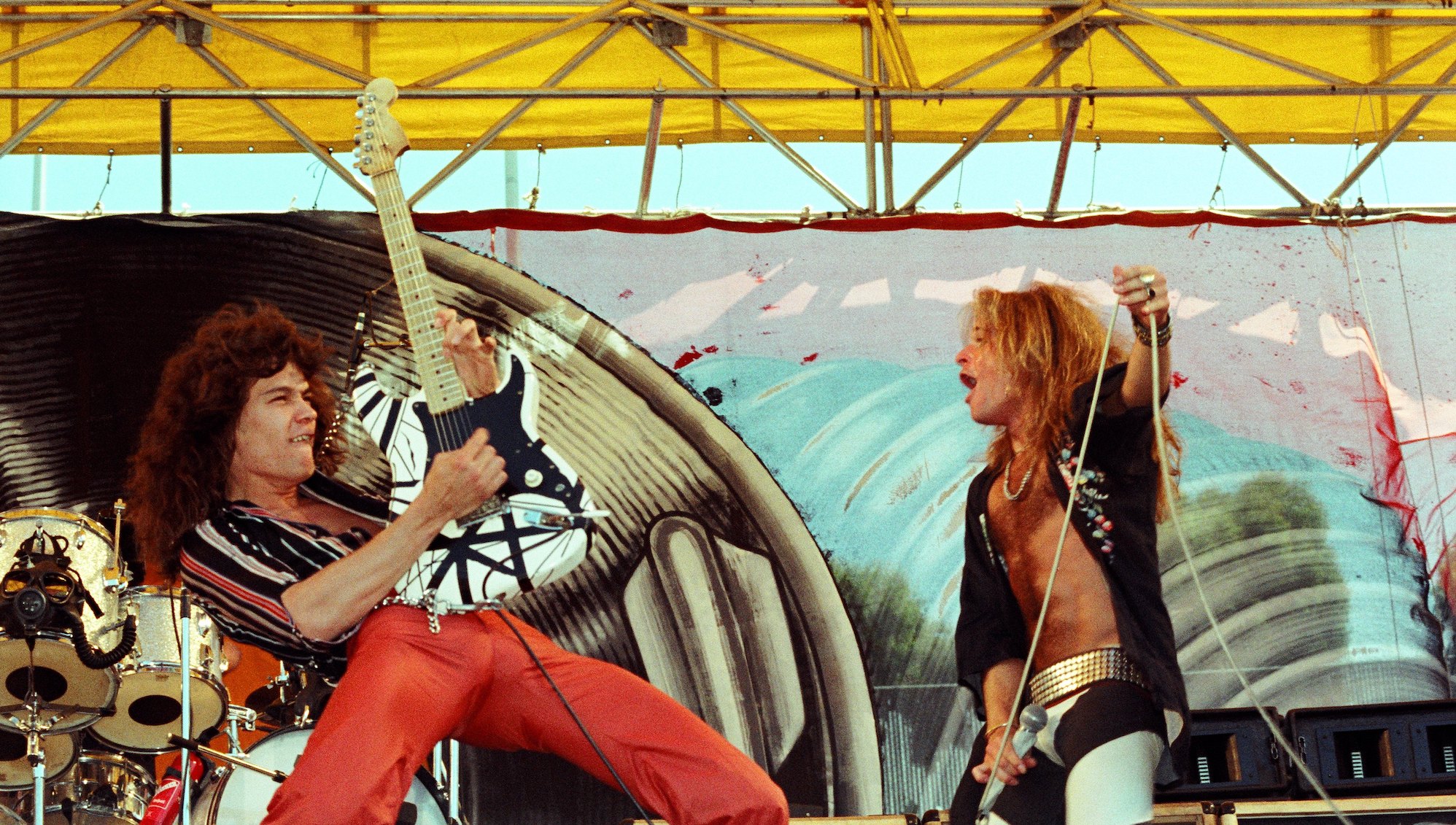
Even in the early days of Black Sabbath, the band played some unglamorous gigs at working men’s clubs or in remote towns in northern Scotland.
Iommi: "We used to play working men’s clubs and get thrown out quite often. They used to tell us to turn it down or we wouldn’t get paid. Well, since they weren’t paying us to begin with we’d turn it up even louder!"
Van Halen: "When we used to play clubs we learned just enough Top 40 songs to get hired. At the gig you had to play five 45-minute sets, but most pop songs are three or four minutes long, so that’s a lot of tunes to learn!
It was either 'the guitarist is too loud' or 'plays too psychedelic.' They always complained about me
Eddie Van Halen
"We figured we could play our own stuff and no one would care as long as the beat was there. One day we were playing at this club in Covina called Posh. We ran out of Top 40 tunes so we started playing our own music. The owner of the club walks up to us while we were playing a song and goes, 'Stop! I hired you to play Top 40. What is this shit?'
"He told us to get the fuck out of there, and he wouldn’t let us take our equipment. We had to come back the next week to pick up our equipment. It was always that way. It was either 'the guitarist is too loud' or 'plays too psychedelic.' They always complained about me."
Iommi: "We went through the same thing. In the early days we couldn’t get gigs in England, so we went to Europe. We were playing at this place in Zurich, Switzerland, and we had to play five 45-minute sets every day for three weeks, but on the weekend we played seven 45-minute sets.
"We didn’t have enough songs, so we’d go, 'Drum solo!' Then the next set we’d do a guitar solo and then a bass solo, and that’s how we’d get through the night. They caught on to us, and during Bill Ward’s next drum solo someone walked up to us and went in broken English, 'Shut the fucking hell up!' It was the owner’s daughter."
Van Halen: "That’s how jamming started."
Iommi: "That’s how we came up with War Pigs. We just jammed and made stuff up. But it was good learning ground. You played a lot because you had to. And you had to learn how to make your own sound. You couldn’t just buy a box or pedal that does it, like kids can do today."
Van Halen: "It’s funny but no matter how hard I tried to sound like the records – and I really tried – I always ended up sounding like me. We used to play It’s Your Thing by the Isley Brothers, but everyone thought it was a Black Sabbath song because I was playing it through a Marshall.
"It was Black Sabbath funk! We would play Get Down Tonight by KC and the Sunshine Band – all that stuff. The stuff that was closest to my heart was Black Sabbath. But it was a blessing. If you play and play and play, after a while you discover the essence of yourself."
You both started out as aspiring drummers.
Van Halen: [to Iommi] "You did too?"
Iommi: "That’s what I wanted to become originally. My parents wouldn’t let me get a set of drums because they were too loud."
Van Halen: "And then you got an electric guitar and became even louder."
You both have really well-developed rhythm styles. Do you think your interest in drums had anything to do with that?
Van Halen: "I think it’s just inherently built in. When I was growing up and listening to bands like the Dave Clark Five, the groove was what initially got me going. I really like that funky, heavy groove.
"Obviously you have to have rhythm. If you have rhythm, then you can play anything you need. If you have rhythm and you love music, then play and play and play until you get to where you want to get. If you can pay the rent, great. If you can’t, then you’d better be having fun. Playing guitar is the only thing I ever knew how to do."
Iommi: "I first played accordion. That was my first actual instrument. My father played accordion, and so did many of my relatives. Nobody played guitar back then. People in my family either played drums or accordion, and I went from accordion to guitar."
Van Halen: "I had to learn to play piano because that was the respectable instrument to play."
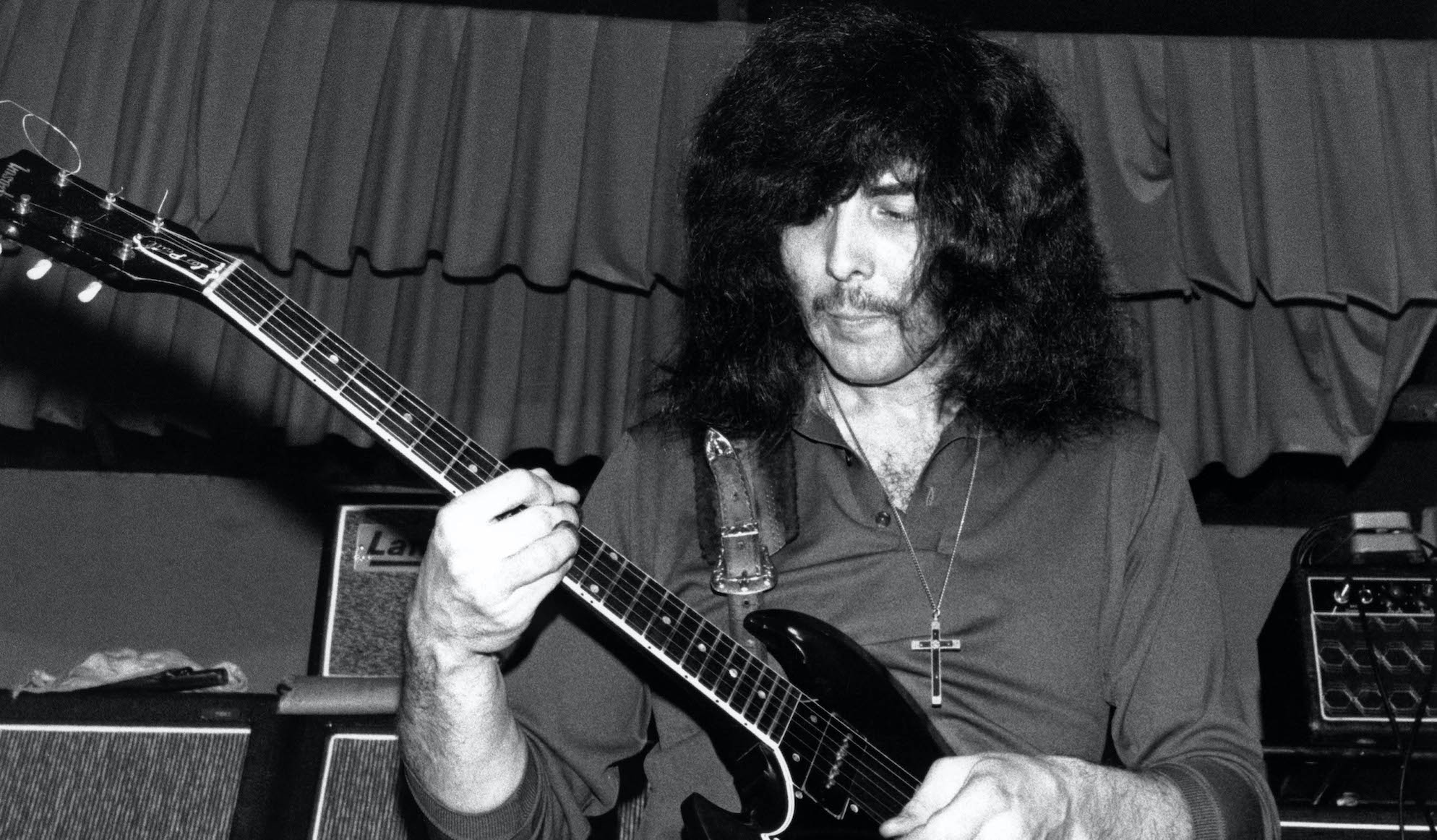
You both have mentioned Clapton as an early influence.
Iommi: "Probably because of the whole blues thing. I really liked his playing with John Mayall, which influenced a lot of players back then."
Van Halen: "With me it was all about the live Cream stuff. I don’t mean to downplay anything Clapton did, but for me it was also about Cream’s rhythm section. Listen to I’m So Glad on Goodbye and adjust the balance to the right – Jack Bruce and Ginger Baker were playing jazz through Marshalls. To me that is where Clapton’s style came from. Clapton was the only guy doing that kind of extended soloing back then."
Iommi: "That’s right. Later on it was Hendrix and everybody else, but Clapton in those days appealed to a lot of people from his work with John Mayall through Cream."
Ed, I understand that in the very early days of Van Halen you originally wanted to call the band Rat Salad.
Van Halen: "Yeah, that’s right. We played just about every Black Sabbath song. I used to sing lead on every Black Sabbath song we did – things like Into the Void, Paranoid and Lord of This World. When we toured with Black Sabbath in 1978, they scared the shit out of us. I’ll tell you a funny story that I’ll never forget.
"I walked up to Tony and began to ask him, 'Second song on side two of Master of Reality…' Tony looked at me and went, 'What the fuck, mate?' By that time Black Sabbath had several records out, but we had only one album out so I knew where every track on our first record was. A few years later somebody asked me a question in the same way, and I was going, 'Oh, you’ve got to be kidding me.'
"The first thing that popped in my head was that incident with Tony! At first I thought it was odd that he couldn’t remember what was on his records, and then it happened to me."
Black Sabbath and Van Halen toured together for eight months in 1978. What effect did you have on each other?
Van Halen: "To me, Tony is the master of riffs. That’s what I loved. I’m not knocking Ozzy or his singing, but listen to Into the Void. That riff is some badass shit. It was beyond surf music and jazz. It was beyond anything else I had ever heard. It was so fuckin’ heavy.
"I put it right up there with [sings the four-note intro to Beethoven’s Fifth Symphony]. Listen to the main riff, where he chugs on the low E string. It hits you like a brick wall."
Tony, what did you think of Van Halen?
Iommi: "From the very first minute I heard them I knew straight away that they were something special. The way that Ed plays is very different. He came up with a style that’s been imitated a million times. And they had great songs. Often after the shows we would get together in my room and chat about guitars. We’d ramble on for about 10 hours before we’d go to bed."
Van Halen: "Or not. [laughs]"
Listen to Into the Void. That riff is some badass shit
Eddie Van Halen
Iommi: "That’s right! [laughs] I really enjoyed that tour. Brian May is the only other guitar player I’ve ever associated with, and we’ve never been on tour together."
Van Halen: "I was just telling Matt [Bruck, Van Halen's longtime head guitar tech] this morning that out of all the people I’ve ever met – all the celebrities and rock and roll stars – I fuckin’ love this guy.
"He’s the sweetest, most humble, down to earth, normal guy. He has no attitude, and look at what this guy has done! I could name a handful of people who I still respect but no longer look up to. After I met them I was like, 'Fuck you! You’re no better than I am as a person.'
"So many people are a bunch of pompous fuckin’ pricks. What makes them think their shit doesn’t stink? Tony is still like a brother even after all these years."
Heaven and Hell was the first record you released after touring with Van Halen and after Ozzy left Black Sabbath. Your playing on that record progressed significantly from what you did on Never Say Die! What inspired that shift?
Iommi: "The whole thing was different because we had a different singer and we developed a different sound. It was a different approach, really."
Van Halen: "It’s just the chemistry."
Iommi: "Yeah. Ronnie [James Dio, singer] was someone we could sit down and work with. He brought new life to the band. When we did Never Say Die!, which we probably shouldn’t have called the album since we broke up after it came out, it was really tough. Ozzy left after we wrote the first song, and then about three days before we were due to record the album he wanted to come back.
"Working with a different singer influenced me to approach my playing in a different way. Ozzy didn’t participate that much toward the end and wasn’t coming up with any ideas, but when Ronnie came along he provided a lot of input."
Van Halen: "It’s similar to when [Sammy] Hagar joined the band. It’s just the element that a different person brings to the band. It’s just like my son being the band’s bassist now.
"He approaches everything differently, and the rhythm section is now like this huge wall behind me. I’d want to play with him regardless of whether he was my son or not. It’s not to knock anyone. It’s just when you change elements of a band, the chemistry also changes. One little change can shift the whole dynamic. It’s not that it’s getting any better or worse.
"A lot of people ask me which Van Halen singer was better. You can’t compare them. It’s like asking which guitarist is better. Nobody is better than anybody. Every player is their own person."
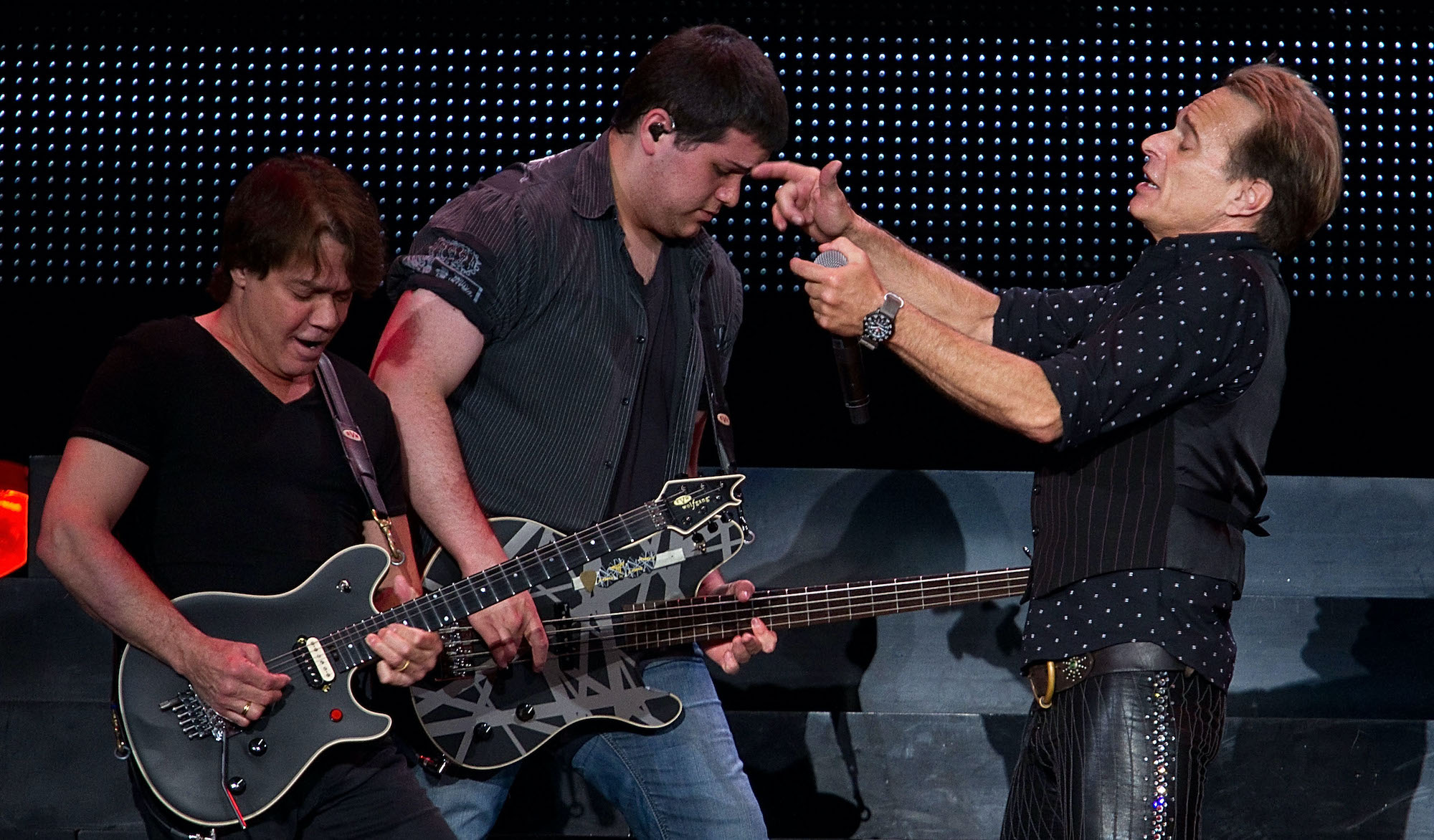
Iommi: "I get asked that question about singers all the time, and I can’t really answer it either. I really have worked with some amazing musicians and singers."
Van Halen: "Music is not the Olympics. It’s not a sport; it’s a form of expression. There is no such thing as bad music. There may be music that you personally don’t like, but if you don’t like it, don’t listen to it and shut the fuck up! Don’t listen to it and complain about it. There’s lots of music that I don’t care for, but you can’t say it’s bad.
"That’s subjective. That would happen if we put out something new now also. When we released Van Halen II, the critics and some fans went, 'Hey! It’s different than the first one.' Well, yeah! It’s a different record. If it sounded like the first one then fans and critics would complain that it sounded the same. What the fuck?"
Iommi: "You can’t ever win no matter what you do."
Music is not the Olympics. It’s not a sport; it’s a form of expression
Eddie Van Halen
Van Halen: "You just do what you do. If anyone has a better way, show me how to please everyone all the time! For some reason people love to complain about everything. The internet has made it easy for people to do that. Shut the fuck up and get a life, or show me how good you can do it.
"People think they know what I should do. A lot of fans are complaining that Van Halen should put out a new record now. Everybody is going, 'Eddie should do this. Eddie should do that.' I’ve got all kinds of music that I could put out if I wanted to, but they don’t take into consideration the other members of the band. Maybe the singer doesn’t want to do that.
"I play classical piano. I play a little bit of cello. I write all kinds of different music that certain singers or certain musicians don’t want anything to do with. So what do I do?
"When people see Van Halen or Black Sabbath, it conjures up a certain image in their minds. If there’s just one albino pubic hair outside of that image, they won’t accept it. And if we do put something out, the first thing people are going to say is that it isn’t as good as the classics. Okay. Put it in your closet for 20 years and then it will be classic.
"People forget that we put three new songs – It’s About Time, Learning to See and Up for Breakfast – on Best of Both Worlds in 2004. The reviews didn’t even mention those songs. When we played the new songs live, people would just stand there. Nobody said anything about them.
"Why go to all the trouble, spend all of that time in the studio and spend tons of your own money – there aren’t even any record labels anymore to put our shit out – to record a new album when people are only going to complain about it or ignore it or somebody is going to download it from the internet for free?
"We might not record something new. There’s an element of satisfaction and joy to creating something new, but not when it comes solely at your own expense and when people are just going to shoot it down, no matter what you do."
Iommi: "Early on with Sabbath I recorded a couple of instrumentals on Master of Reality. For Sabotage I wrote this song called Supertzar and I wanted to have a choir on it. I got a choir in the studio, and even my own band members were wondering what I was doing.
"People from the record company came to visit, and when they saw the choir and this harp player they thought they were in the wrong studio. At the time it wasn’t the normal thing to put this heavy guitar with choir and harp on an album, although it did finally make it there. I was just experimenting and trying something new. I feel that as long as you write it, it’s you."
It’s weird how fans want bands to keep putting out new albums but when they play live, fans only want to hear the old songs.
Iommi: "Even that doesn’t stop the criticism and complaints. Whenever we do a show people are always saying that we didn’t play enough songs. Nobody understands that you only have a limited time. There are curfews and union rules that you have to obey."
Van Halen: "Or you’ve got a guy with a decibel meter telling you how loud you can play."
Iommi: "And then people complain that the band wasn’t loud enough. What can you do? You can try to fight these things but you can’t refuse to go on. I wish that people had a better understanding of what is going on."
Van Halen: "People only see the end result. When you walk onstage, they don’t take into consideration the years of practice, the attitudes and egos of other people that you have to deal with, the songwriting, the recording, the record producer, the crew, designing the stage. All they see is the show."
Iommi: "And then they complain that you didn’t play a certain song."
It’s interesting how you both made your initial impact and found success by coming up with something that was very original. Then, after thousands of imitators copied you, you had moved onto something else, but fans didn’t want you to change. It seems like the more successful you become, the harder it is to do what made you successful.
Iommi: "That’s why I just do what I like."
Van Halen: "I’m just glad to be able to play. I recently had hand surgery and arthritis treatment. I found out that Tony was having the same problems I was, so I turned him on to my doctor. It’s funny how there are so many parallels between Tony and me."
Iommi: "I was already booked for surgery in London with this specialist. Then Eddie told me about this guy in Dusseldorf, Germany, who he went to for the same problem, so now I’m going to see him instead."
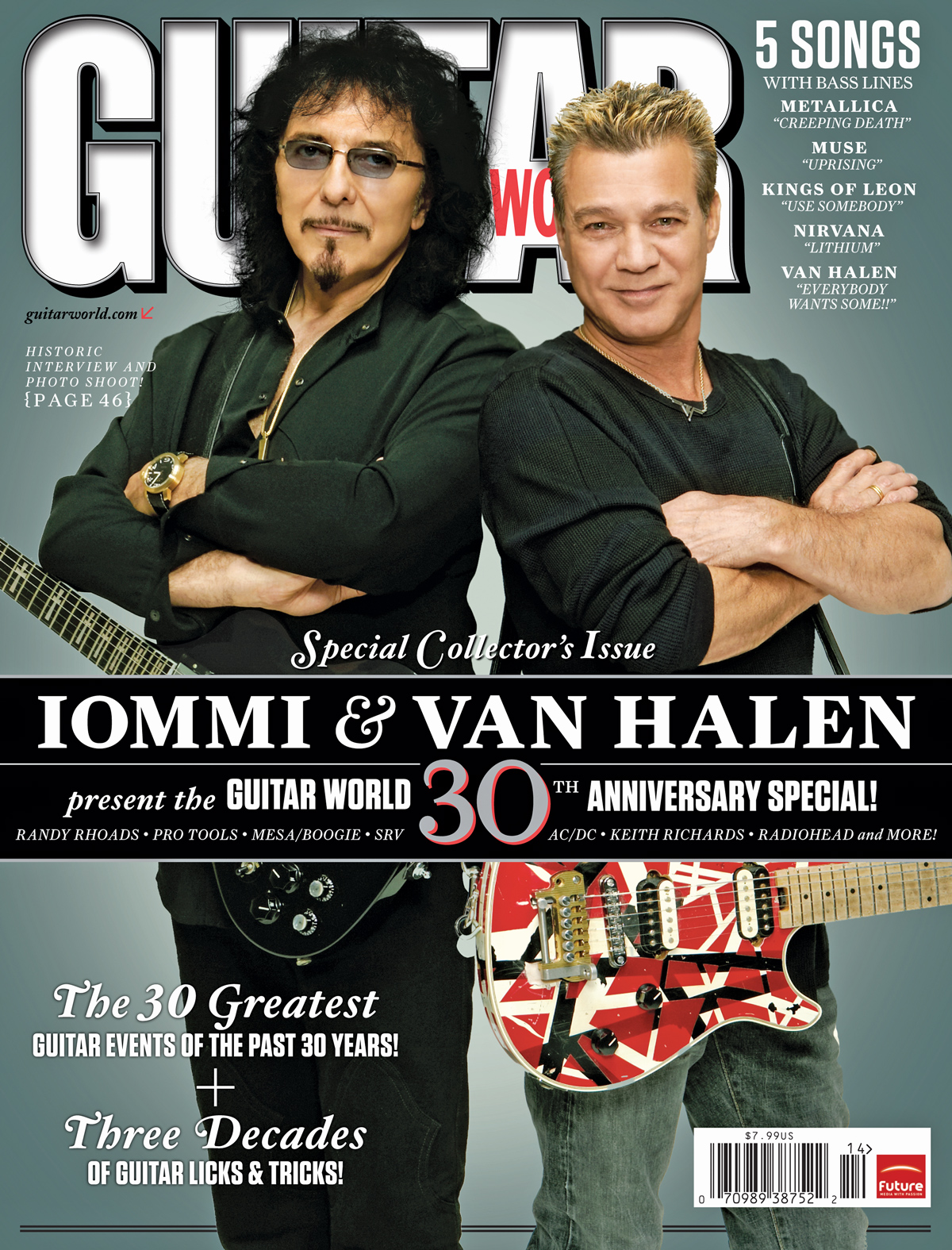
Van Halen: "My hand hurt so much I couldn’t even play. On the last half of the last tour, I was in pain. Tony is in pain now, and people are giving him shit about not wanting to tour.
"This is what we do for a living. It’s not only our livelihood and our income, it’s the only thing I know how to do. You don’t know how I felt not being able to stretch my hand to play because of that pain. And then I had to go under the knife! I was scared shitless that it wasn’t going to work.
Iommi: "I know that as soon as I go in, all of these things are going to come out on the internet and in the press."
Van Halen: "It’s nice to have some avenue to explain this to people."
Why wouldn’t you want to get a problem fixed? You want to be able to play. Everyone should understand that. Les Paul suffered and struggled with arthritis for years. It’s too bad he didn’t find out about your doctor.
Van Halen: "I knew Les very well. I’m glad that my son and I got to hang out with Les when we were on tour in New Jersey. He lived a long life, and he always did what he wanted to do."
Like Les Paul, you both like to modify your guitars. Tony, you changed pickups on your guitars very early on, when it wasn’t common practice to do that. The only guitarists I can think of who did that before you were Les Paul and Eddie Cochran.
Iommi: "It’s weird how we’ve both done a lot of the same things. I bought a guitar company because I couldn’t get anybody to make the guitar that I wanted. Back in those days Gibson didn’t want to know me, so I started a company and had a guy build me guitars with 24 frets and everything else that I wanted. Guitar companies told me that it couldn’t be done."
Van Halen: "Personal need is where it all comes from."
Iommi: "You’ve got to do it for yourself."
Van Halen: "And then people want one. You try to give people what they want, but if the company that makes it is substandard, the people blame you. It ain’t my fault the thing broke off! Mine broke too! Don’t blame me because my name is on it. I just invented it for myself. Do you think people blame Henry Ford for a bad Mustang?"
Iommi: "Companies always cut corners to try to keep costs down. It’s expensive to make things right."

I was just looking at your guitars and I noticed that Tony uses the same type of fluted knobs as Eddie has on his guitar, only larger.
Iommi: "It’s so ironic."
Van Halen: "And the back of his guitar’s neck is stripped, just like mine. I never liked having any kind of paint or lacquer on the neck. Tony took all of his off – the same thing!"
You both also like to tune the guitar lower than standard pitch.
Van Halen: "I just use whatever tuning the guitar seems to be in when I pick it up. On tour we tune down for the singer, and us, so we’ll be able to sing background vocals five nights a week without blowing our pipes out. And some songs just don’t sound right in standard tuning.
"It would be like Tony taking Into the Void and tuning it up. And some stuff doesn’t sound right tuned down. But it’s out of necessity. For a while I had my E string tuned down to Db, so when I wanted to use a 'drop D' tuning on songs like Unchained my low E string was tuned all the way down to B."
Iommi: "In the early days when we did Master of Reality, I tuned down because playing at standard pitch used to hurt."
Van Halen: "It amazes me that you do that. Tony still makes his fingertips himself [at 17, Iommi lost the tips of his right hand middle and ring fingers in a metal shop accident]. I just saw them. It’s amazing. It just goes to show what the true essence of a real player is. He wants to play, and he did whatever the fuck he had to in order to do that."
Iommi: "No one has ever come up with a better idea than mine. Again, people don’t realize all that I have to go through just to get on that stage every night. I have to change the leather because it wears out, and I have to use light strings, which take a while to break in."
Van Halen: "I have a really hard time holding onto picks. I’ve even tried gluing sandpaper to them, but sometimes that doesn’t even work. It’s all about these tools that we need to do our jobs. Tony needs his thimbles, and I need Krazy Glue and sandpaper so I can hold onto a pick."
What were some of the most significant events for you over the past 30 years?
Iommi: "The band broke up and got back together again."
Both of your bands did!
Van Halen: "Some things have changed, but with me it’s always been a family thing. It still is. My son joined the band. Contrary to people’s beliefs, I didn’t get rid of anyone to get him in the band. We needed a bass player, and when I asked if he wanted to play bass, he said sure. It’s always been my brother and me and whoever else."
Iommi: "People have asked me over the years, 'Why did you get rid of so and so?' They don’t understand that sometimes people don’t want to stay, or they don’t want to work hard and you have to replace them. You may not be happy about it, but it’s like a factory: just because a worker leaves, you don’t close the whole factory down."
Van Halen: "You don’t stop making music just because one of the guys doesn’t want to play with you any more."
Iommi: "There are so many different aspects to it. Sometimes they don’t want to carry on and want to do their own thing so you replace them."
And sometimes you don’t know when hell is going to freeze over and you’ll work with someone again.
Van Halen: "Who ever thought we’d be back again with Roth? He went off and did his own thing. He just got tired of what we were doing. We did our thing, and now we’re back together."
Iommi: "Black Sabbath got back together with Ozzy. Even when Heaven and Hell got together with Ronnie James Dio a few years ago, we didn’t think we were going to record a new album, but things worked out so well that we did it."
You’ve both worked with singers who developed these larger-than-life personalities.
Iommi: "Yeah, but we became the arseholes."
Van Halen: "The bottom line for me is I’m just happy to be here with my friend Tony. I’ve had a hip replacement, I’ve beaten cancer, I had my hand operation, and I stopped drinking. Something inside of me just went, 'I’m done.' People always ask me if I’m in a program. AA didn’t do anything for me. Rehab didn’t work. Nothing worked.
"It’s a strange thing. If you don’t want to quit, you won’t. I can’t tell you what happened. It just did. I don’t need to drink. I’m not jonesing for one. I don’t even think about it any more. It’s like God gave me one big bottle and I drank it all, so now it’s gone. I’m done. I’m just happy to be alive and to still be able to play. I’d say for both of us that not a hell of a lot keeps us down."
Iommi: "We’ve done an awful lot."
Van Halen: "We’ve made a lot of mistakes."
Iommi: "And you learn from them."
Van Halen: "We’ve come up with a lot of cool stuff, and we’re far from done. We’re certainly not the assholes that people think we are."
Iommi: "We just try to be ourselves. That’s why we’ve been friends for so long."
Chris is the co-author of Eruption - Conversations with Eddie Van Halen. He is a 40-year music industry veteran who started at Boardwalk Entertainment (Joan Jett, Night Ranger) and Roland US before becoming a guitar journalist in 1991. He has interviewed more than 600 artists, written more than 1,400 product reviews and contributed to Jeff Beck’s Beck 01: Hot Rods and Rock & Roll and Eric Clapton’s Six String Stories.
“I always felt like that record could have been better if we had worked on it some more”: Looking for a blockbuster comeback album, Aerosmith turned to Van Halen producer Ted Templeman. For Joe Perry, it served as a learning experience
Guitar World Discussion: Who is the most underrated guitar player of all time?
